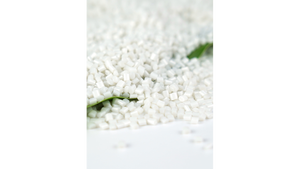Global biopolymer leader Braskem in the sweet spot
For Braskem (stand 6D27), the Brazilian company with proprietary technology for converting sugarcane ethanol into useable feedstocks for biopolymers, life just keeps getting sweeter. The company today announced that it was launching a project to build a green propylene plant in order to move into industrial scale production of green polypropylene. The green polypropylene will have the same technical, processability, and performance properties as polypropylene made using traditional production routes. According to Rui Chammas, VP of the Braskem polymers unit, Braskem occupies a unique position in this segment.
October 28, 2010
"As far as we know, we are the first and the sole commercial-scale producers of polyethylene, and now also of polypropylene made from a renewable source, in the world. Moreover, ours are the most compatible biopolymers on the market today."
Just a month ago, Braskem inaugurated the world’s largest ethylene-from-ethanol plant with a capacity of 200,000 tons of green polyethylene per year. The project absorbed investments of almost R$500 million. Already, demand is three times the capacity of the new plant.
"We knew the demand was out there. But now, we’re having to consider expansion options. We’re exploring the possibilities for extra ethylene plants in different parts of Brazil," says Manoel Carnauba Cortez, executive VP of the Petrochemicals Unit, with a smile.
Green plastics are exceptionally eco-friendly, since the process used to produce each ton of polyethylene from the primary raw material removes 2.5 tons of carbon dioxide from the atmosphere, while each ton of green polypropylene produced captures and sequesters 2.3 tons of this gas. Polymerization runs via a chemical route and involves no genetic modification technology.
Since last year, Braskem has established several partnerships to supply green polyethylene to domestic and international clients who have adopted sustainable development as a pillar of their market strategy. This pioneering group of companies includes Tetra Pak, Toyota Tsusho, Shiseido, Natura, Acinplas, Johnson & Johnson, Procter & Gamble, and Petropack. The most common applications of plastics from renewable sources are personal care and cleaning products, food packaging, toys and home appliances.
You May Also Like


